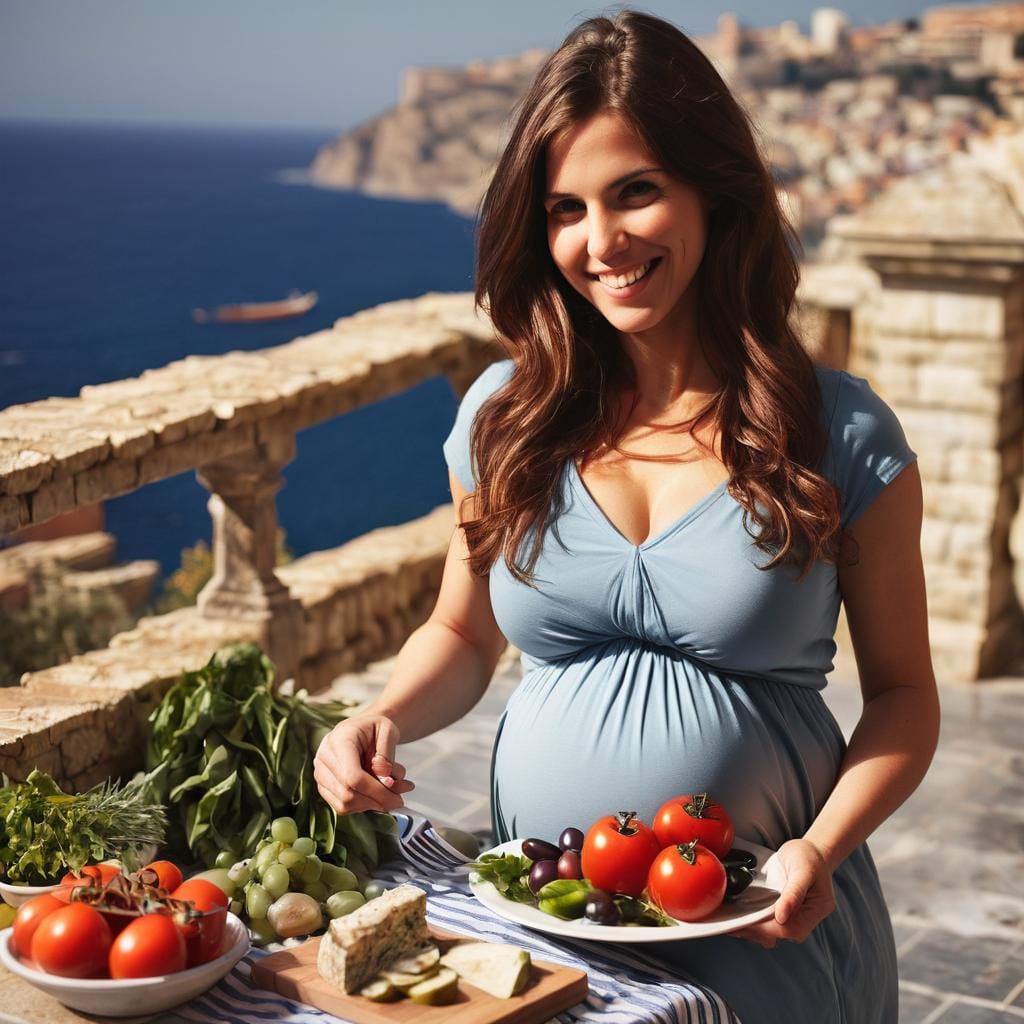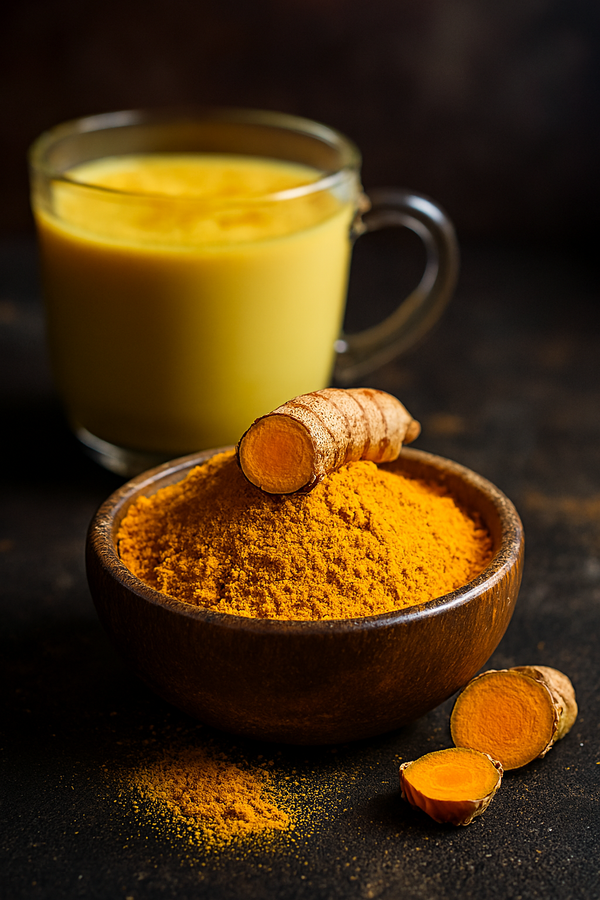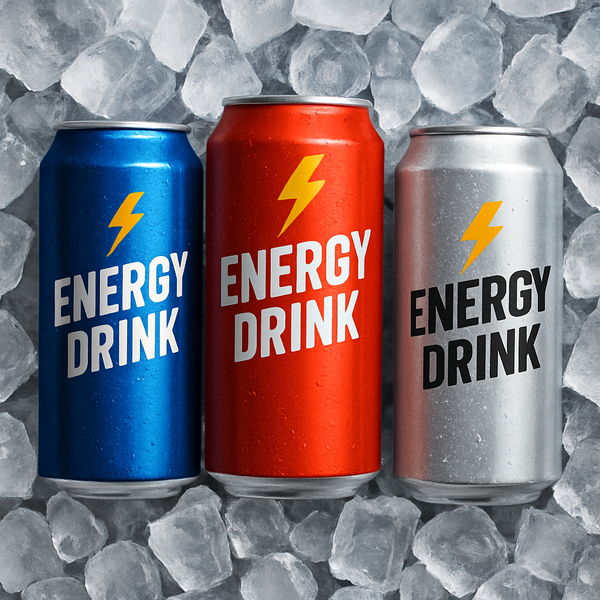Q&A: How Does Nutrition Influence Mate Selection and the Chance of Conception?
Proper nutrition enhances fertility by influencing mate selection and attractiveness. A balanced diet rich in essential nutrients supports reproductive health and increases conception chances.


Take-home messages:
|
Key Area |
Take-Home Messages |
|
Fertility and Age |
- Men experience
a gradual decline in fertility starting around age 40, while women see a
sharper decline after age 35. Optimal fertility ages for women are late teens
to late 20s and for men late teens to early 30s. |
|
Lifestyle and
Fertility |
- Smoking, lack
of physical activity and high stress negatively impact fertility in both
sexes. Proper management of these factors can enhance fertility. |
|
Diet and
Reproductive Health |
- Nutrition plays
a crucial role in enhancing fertility by affecting mate selection,
attractiveness and sexual arousal. A balanced diet rich in micronutrients is
essential, especially during the periconceptional period. |
|
Nutritional
Status and Mate Selection |
- Good nutrition
throughout life influences physical attributes such as height and upper body
strength, which are preferred traits in men and healthy weight generally preferred
trait for women. |
|
Dietary Impact
on Sexual Health |
- Plant-based
diets may improve sexual health and function due to better blood flow and
nitric oxide production, although moderation in soy intake is advised due to
potential negative effects. |
|
Micronutrients
and Fertility |
- Antioxidants
like Vitamin C, E, folate, selenium and zinc enhance fertility by improving
sperm and egg quality. Carnitines play a significant role in male
reproductive health. Excessive intake of antioxidants, however, can be
detrimental. |
|
Vitamin D and
Reproduction |
- Vitamin D is
essential for reproductive processes in both sexes, with low levels linked to
poorer reproductive outcomes. Adequate sun exposure and consumption of
Vitamin D-rich foods are recommended. |
|
Macronutrients
and Fertility |
- Energy from
macronutrients affects fertility with body weight and waist circumference as
indicators of fertility-related health. Both underweight and overweight
conditions can impair fertility. |
|
Impact of
Alcohol and Caffeine |
- Alcohol and
excessive caffeine can reduce fertility. Alcohol affects sperm quality and
morphology, while caffeine may increase the risk of spontaneous abortion
during pregnancy. |
|
Diet and
Pregnancy Outcomes |
- A balanced diet
rich in essential nutrients reduces risks of pregnancy complications and
supports foetal development. Dietary management is crucial for conditions
like hyperemesis gravidarum, heartburn and constipation during pregnancy. |
Introduction
While not all women or couples aspire to have children, for many, becoming parents fulfils significant social and gender-identity roles. However, achieving pregnancy is often more challenging than many anticipate. Educating oneself about fertility and adopting healthier behaviours can substantially increase the chances of conceiving and ensure better pregnancy outcomes.
While aligning family planning with the biological clock is ideal, pursuing education and career goals often means that age becomes a significant factor in fertility. The biological clock impacts fertility differently across genders; men typically experience a gradual decline in fertility starting around age 40, while women face a sharper decline after age 35 (1-4). However, various lifestyle choices can still play a crucial role in enhancing fertility despite age-related challenges. Among the crucial lifestyle choices for optimal health—such as avoiding smoking (5) and engaging in balanced regular physical activity (6) and effectively managing stress (7) (see Table 1 below)—the role of nutrition is particularly significant. Proper nutrition not only affects mate selection, attractiveness and sexual arousal but also enhances fertility in both sexes, increasing the chances of conception. A balanced diet, rich in fruits, vegetables, protein sources and high-quality dietary fats, is essential, particularly during the periconceptional period. This critical time around conception involves weeks before and after pregnancy onset and is vital for ensuring sufficient intake of essential micronutrients and maintaining an optimal body weight. Both nutritional adequacy and a healthy body mass index are linked to improved fertility. Adequate nutrition is also linked to a reduced risk of preeclampsia, a pregnancy complication characterised by high blood pressure and signs of damage to another organ system. By prioritising nutrition, individuals can lay a solid foundation for a successful path to parenthood, significantly enhancing their reproductive health.
Table 1: Impact of Demographic, Lifestyle Factors and Stress on Fertility in Men and Women
| Factor | Impact Area | Effect on Fertility | Reference |
|---|---|---|---|
| Age | General Fertility | - Men: Gradual decline in semen quality and volume starting around age 40. | (1-4) |
| - Women: Sharp decline in fertility after age 35 due to decreased egg quantity and quality. | |||
| - Peak fertility for women is from late teens to late 20s, for men from late teens to early 30s. | |||
| Smoking | Female Fertility | - Reduces ovarian reserve and leads to earlier menopause. - Causes hormonal disturbances. - Impairs fallopian tube function. - Affects the uterine lining. |
(5) |
| Male Fertility | - Lowers sperm count, decreases sperm motility, and causes sperm DNA damage. - Affects testosterone levels. |
||
| Assisted Reproductive Technologies | - May reduce the effectiveness of treatments such as IVF. | ||
| Physical Activity | Women (Moderate) | - Enhances hormonal balance and reduces stress. - Improves insulin sensitivity in PCOS, aiding fertility. |
(6) |
| Women (Excessive) | - Can lead to hormonal imbalances and disrupt menstrual cycles. - May cause amenorrhea in extreme cases. |
||
| Men (Moderate) | - Improves testosterone levels and semen quality. - Aids in weight management, improving sperm quality. |
||
| Men (Excessive) | - Can reduce testosterone levels and degrade sperm quality. - Linked to reduced libido and altered sperm characteristics in endurance athletes. |
||
| Stress | General Fertility | - Can lead to hormonal imbalances that disrupt ovulation and sperm production. - Increases the likelihood of behaviours that negatively impact fertility (e.g., poor diet, smoking). - May reduce the effectiveness of fertility treatments. |
(7) |
| Diet | - Poor diet can lead to nutritional deficiencies affecting hormone production and reproductive function. - High intake of antioxidants helps improve sperm and egg quality. - High levels of caffeine consumption have been debated for their impact on fertility, with some studies suggesting a potential reduction in fertility rates. |
(8) | |
| Environmental Exposures | General Fertility | - Exposure to pollutants, chemicals, and radiation can decrease sperm count and egg viability. - Pesticides and heavy metals have been linked to lower fertility rates in both sexes. |
(9) |
| Sleep | - Insufficient sleep can disrupt hormone levels, affecting sperm production in men and ovulation in women. - Sleep disturbances have been associated with poorer semen quality. |
(10) | |
| Mental Health | - Chronic stress and depression can negatively impact libido and reduce the likelihood of engaging in sexual activity. - Mental health disorders might influence hormone regulation and menstrual cycle regularity. |
(11, 12) |
IVF, In Vitro Fertilisation; PCOS, Polycystic Ovary Syndrome
Nutritional Influences on Mate Selection and Attraction Dynamics
Research indicates a distinct preference among women for men who are tall and have broad shoulders (13). This preference suggests that physical attributes such as height and upper body strength, which are often associated with good nutrition and health throughout life, play a significant role in attractiveness. Conversely, chronic undernutrition can lead to stunting, affecting height attainment and subsequently reducing the likelihood of being chosen as a mate.
Similarly, men's preferences for women tend to focus on indicators that suggest health and fertility, such as body mass index (BMI), body fat percentage (BF%) and waist-to-hip ratio (WHR). These preferences underline the importance of potential female mates displaying signs of good health and fertility (14, 15). Indicators of female fertility, including smooth skin, plump lips, well-defined muscles, a healthy BMI range of 18.5–24.9 kg/m2 and a WHR close to 0.70, are critical (16). Both BMI and WHR are significant in assessing adiposity, affecting the female body's appearance and influencing perceptions of physical attractiveness.
Studies in rodents and humans show that higher levels of inflammation make individuals appear less attractive, as evidenced by male rodents' disinterest in inflamed females and human participants looking less appealing after inflammatory injections (17-19). Obesity is known to increase inflammation in the body, which may explain why a healthy body weight is generally more desirable across various populations, as it is associated with lower inflammation and potentially greater attractiveness. Additionally, what we eat can either increase inflammation (inflammatory diets) or reduce it (anti-inflammatory diets), affecting our overall health and attractiveness. This connection between nutrition and physical attributes underscores the role of nutritional status in mate selection even before any sexual interaction occurs.
Nutritional Influences on Sexual Arousal
Dietary choices, particularly vegan diets, may have a favourable impact on sexual health, including nighttime erections (also known as nocturnal penile tumescence) and reducing erectile dysfunction a common issue linked with aging indicating early cardiometabolic disease (20, 21). While direct studies are limited, the cardiovascular benefits associated with a plant-based diet—such as improved blood flow and nitric oxide production—support the notion that vegan diets could enhance erectile function. Although direct studies are scarce, the cardiovascular advantages of a plant-based diet, such as enhanced blood flow and increased nitric oxide production, suggest that vegan diets could improve erectile function. However, it is advisable to moderate soy intake within these diets. Soy contains isoflavones like genistein, daidzein and glycitein, which are structurally like oestrogen and can bind to oestrogen receptors, potentially acting as weak oestrogens or anti-oestrogens and being associated with erectile dysfunction. Animal studies have demonstrated that large amounts of daidzein can induce structural changes in the penile tissue, such as increased collagen and reduced smooth muscle and elastic fibres, which might impair erectile function (22, 23). Additionally, a case report highlighted an 18-year-old who developed erectile dysfunction linked to low testosterone levels due to a high soy vegan diet, which was reversible upon discontinuing the soy-rich diet (24).
The relationship between diet and arousal in women, is a growing area of interest. Research on the impact of diet on female sexual health, including libido, arousal and satisfaction, is less extensive than on male erectile function. The Mediterranean diet, which focuses on whole grains, fresh fruits and vegetables, fish and polyunsaturated fats, has been shown to lower inflammation markers in women, regardless of whether they are of healthy weight (25, 26) or overweight (27). It has also been associated with improved sexual function, especially in sexual desire and arousal (27-29), in women with metabolic syndrome. Additionally, an energy-restricted diet, known to decrease chronic inflammation (30), has been found to enhance sexual desire and arousal in overweight women (31). Research on soy's impact on women's sexual function is sparse but promising (8, 32). However, a case study on persistent sexual arousal syndrome showed that excessive soy intake worsened symptoms and should be avoided (Amsterdam et al., 2005).
Impact of Micronutrients on Fertility
Numerous studies have examined the relationship between fertility and various micronutrients—including antioxidants, B-vitamins and minerals—as well as amino acid derivatives, polyunsaturated fatty acids, and carbohydrates (33-36). IHere I highlight key findings concerning these micronutrients and other nutritional factors, including their impact on weight status.
Carnitines, derived from an amino acid, are naturally present in meat, poultry, fish and milk, and can also be synthesised in the liver and kidneys from lysine derivatives. Vegetarians tend to have lower levels of carnitines compared to omnivores (37). Carnitines are water-soluble antioxidants (35). L-carnitine is a bioactive carnitine. L-carnitine and L-acetyl-carnitine are particularly noted for their importance in male reproductive health (38, 39), leading researchers to use these supplements in treating male infertility characterised by sperm dysfunction (40). Zhou and colleagues evaluated the effectiveness of these supplements through a review of experimental studies, finding that L-carnitine and L-acetyl-carnitine enhanced pregnancy rates, sperm motility, and reduced abnormal sperm cells, although they had no effect on sperm concentration or semen volume. While dietary intake and natural body synthesis generally satisfy carnitine needs, certain conditions such as genetic disorders, chronic renal failure, or specific antibiotic use can impair carnitine absorption and increase its excretion, thereby necessitating supplementation (41).
Vitamin C, vitamin E, folate, selenium, zinc, carnitines, co-enzyme Q10 and lycopene are antioxidants that effectively scavenge free radicals, neutralise their effects and prevent the chain reactions that lead to oxidative stress in body tissues. These antioxidants are particularly beneficial in reversing oxidative stress-induced sperm dysfunction and enhancing pregnancy rates (35). Although these antioxidants are often used alone or in combination, the optimal regimen has yet to be determined. It is crucial to maintain balance, as excessive consumption of antioxidants may result in reductive stress, which could be harmful (35). Supplementation with selenium (alone or combined with N-acetylcysteine), polyunsaturated fatty acids such as eicosapentaenoic acid (EPA) and docosahexaenoic acid (DHA), co-enzyme Q10 and a combination of zinc and folic acid, as well as L-carnitine and acetyl-L-carnitine, appears to improve the spermiogram in infertile men (33). A summary of randomised control trials investigating the efficacy of oral nutritional agents including some of the antioxidants among women with polycystic ovary syndrome (PCOS), a hormonal abnormality (36) revealed that inositol (a type of sugar/carbohydrate) supplementation have advantages in increasing sex hormone binding globulin and improving glycolipid metabolism when compared with co-enzyme Q10, vitamin E and vitamin D. However, vitamin E in particular may be a better in reducing total testosterone and increasing sex hormone binding globulin in women.
Zinc, a mineral found abundantly in meat, poultry, shellfish, legumes, seeds, nuts, dairy and eggs, is among the most extensively researched nutrients concerning fertility (42). Zinc has unique properties that make it essential in men’s fertility. Its crucial role in male fertility is well-documented, acting as a hormone balancer and an antibacterial agent within the male urea system. It is vital for maintaining the integrity of epithelial tissues (maintaining the lining of the reproductive organs) and may have a regulative role in the progress of capacitation and acrosome reaction (an exocytotic event that allows cells to penetrate the zona pellucida and fuse with the oocyte plasma membrane to achieve successful fertilisation) (43, 44). As an antioxidant, zinc particularly benefits infertile male smokers by mitigating the adverse effects of toxins and heavy metals (44). Zinc deficiency can significantly impair spermatogenesis, lead to sperm abnormalities and adversely affect testosterone levels (42, 44). The zinc-to-copper ratio, is important with higher levels of copper in men experiencing infertility, underscoring the need to manage this balance (42). Addressing zinc deficiency is crucial, particularly in men, to enhance fertility prospects for couples aiming to conceive.
Vitamin D plays a critical role in reproductive processes in both sexes, with its receptors and metabolising enzymes present in reproductive tissues of women and men (45). In mice, the absence of vitamin D receptors leads to gonadal insufficiency, reduced sperm count and motility, and abnormalities in reproductive organs (as reviewed by Lerchbaum and Obermayer-Pietsch (45). Vitamin D is involved women’s reproduction including in vitro fertilisation (IVF) outcome (clinical pregnancy rates) and PCOS, might influence steroidogenesis of sex hormones (oestradiol and progesterone) and high circulating vitamin D levels might be associated with endometriosis. Low vitamin D levels in women with PCOS are associated with obesity and metabolic issues, and supplementation is advised to improve menstrual regularity and metabolic function. In men, adequate vitamin D levels are linked to better semen quality and higher testosterone levels (45). Given its importance for reproductive and overall health, adequate (not too much) sun exposure and consuming foods rich in vitamin D, such as oily fish, red meat, liver and egg yolks, are recommended.
Impact of Macronutrients on Fertility
Energy from macronutrients, along with micronutrients, impacts fertility, with chronic energy consumption influencing body weight and central obesity, as indicated by body mass index (BMI) and waist circumference. Maintaining a healthy weight supports fertility, though it does not ensure conception. Being underweight (BMI under 18.5) can disrupt hormone balance, affecting ovulation and the chance of getting pregnant (46) and also slightly increase the risk for miscarriage (47).
Overweight and obesity are linked to reproductive failures (48), including infertility-related conditions like PCOS (49, 50). They also contribute to insulin resistance, characterised by hyperinsulinaemia, hyperandrogenaemia (increased peripheral aromatisation of androgens to oestrogens), altered hormone secretion and disruptions in the regulation of the hypothalamic-pituitary-gonadal axis, all of which can negatively affect (49) Furthermore, overweight and obesity are linked to more pregnancy-related complications (high blood pressure (preeclampsia), diabetes) (51), higher preterm and miscarriage rate (52, 53) and greater likelihood of birth defects in children born to obese mothers (BMI of 30 or greater)(54). In men, obesity is associated with lower testosterone (55), poorer sperm quality (56) and a higher rate of erectile dysfunction (57).
Impact of Alcohol and Caffeine on fertility
Research indicates that consuming alcoholic beverages may reduce fertility in both women and men, although the specific mechanisms in women remain unclear (58) In men, alcohol consumption is linked to reduced semen volume and adverse effects on sperm morphology (59). Additionally, while studies suggest that caffeine alone does not significantly impact fertility (60, 61) it may exacerbate the detrimental effects of alcohol on the likelihood of conception. Moreover, caffeine intake during pregnancy is associated with an increased risk of spontaneous abortion (61).
Dietary supplements and Fertility
Exercise caution with fertility supplements, as a systematic review found that most male fertility supplements available in the US lack solid evidence to support their effectiveness (62). Similarly, dietary supplements for erectile dysfunction show inconsistent efficacy, with only a few showing promise based on the effectiveness and dosing of ingredients; however, they generally do not have enough evidence to be recommended as primary treatment options (63).
Diet and Pregnancy Outcomes
Table 2: Association between diet and pregnancy outcomes and complications
| Dietary Factor | Impact on Pregnancy |
|---|---|
| Balanced diet, adequate nutrient intake and weight management |
Essential nutrients like folic acid, iron, calcium, vitamin D and omega-3 fatty acids are crucial for reducing risks of neural tube defects, anaemia, and supporting overall fetal development. Promotes healthy pregnancy weight, fetal development, and reduces risks of gestational diabetes and hypertension. Appropriate weight gain, influenced by diet, impacts the likelihood of premature birth, cesarean delivery and newborn weight issues. Diets high in processed foods can elevate the risk of hypertension and related complications during pregnancy. Healthy dietary patterns like the Mediterranean diet are linked to reduced pregnancy complications and better outcomes. |
| Hyperemesis Gravidarum | Dietary management, including small, frequent meals and focusing on bland, easy-to-digest foods, can help alleviate symptoms and ensure nutritional needs are met during pregnancy. |
| Heartburn | Avoiding spicy, acidic, or fatty foods and eating smaller, more frequent meals can help reduce heartburn, a common issue during pregnancy due to hormonal and physical changes. |
| Constipation | Increasing intake of dietary fibre, fluids, and engaging in regular physical activity can help manage constipation during pregnancy. |
| Gestational Diabetes | Proper management of diet, especially carbohydrates, is key to controlling gestational diabetes. |
| Preeclampsia | Diets low in calcium, magnesium and vitamin D may increase the risk; a nutrient-rich diet may help reduce this risk. |
| Miscarriage | Inadequate nutrient intake can increase the risk of miscarriage; a diet rich in essential vitamins and minerals supports early fetal development and reduces this risk. |
| Preterm Birth | Nutritional deficiencies can lead to increased risk; a well-balanced diet can help mitigate this risk. |
| Infant birth weight | Adequate nutrition, particularly sufficient intake of protein and calories, is crucial for achieving a healthy birth weight and reducing the risk of low birth weight. |
(64)
Conclusion
In conclusion, the profound influence of diet on both fertility and pregnancy outcomes underscores the necessity for a balanced and nutrient-rich dietary approach. For couples considering parenthood, it is crucial to adopt a lifestyle that supports reproductive health by maintaining a healthy body weight, following a nutrient-dense diet and minimising alcohol consumption. These lifestyle choices significantly boost the likelihood of conception and ensure optimal pregnancy outcomes, thereby enhancing overall well-being. By embracing such a comprehensive nutritional strategy, individuals not only pave the way for successful conception but also contribute to the broader spectrum of a healthy lifestyle. This holistic approach not only bolsters reproductive health but also enhances the general vitality and well-being of prospective parents.
Reflections
Diet Audit: Spend a week tracking your daily food intake to assess how well your diet aligns with fertility-enhancing nutritional guidelines. Focus on the inclusion of fruits, vegetables, lean proteins and whole grains, and reduction of alcoholic beverages reproductive health.
Nutrition and Mate Selection Connection: With a partner or on your own, reflect on how your nutritional choices might influence perceptions of attractiveness and mate selection, based on the research linking nutrition with physical characteristics and fertility signals such as skin health, body composition and overall vitality.
Plant-Based Diet Challenge: Try a plant-based diet for a month, focusing on increasing your intake of fruits, vegetables, nuts, seeds and whole grains. Reflect weekly on how this diet impacts your energy levels, physical health and sexual health, including aspects like libido and performance, which are indicators of overall reproductive health.
Love what you’re reading? Share the knowledge! 📨 Forward this link to a friend who might also enjoy it.
References
1. Group ECW. Fertility and ageing. Human Reproduction Update. 2005;11(3):261-76.
2. Moghadam ARE, Moghadam MT, Hemadi M, Saki G. Oocyte quality and aging. JBRA Assist Reprod. 2022;26(1):105-22.
3. Hassan MAM, Killick SR. Effect of male age on fertility: evidence for the decline in male fertility with increasing age. Fertility and Sterility. 2003;79:1520-7.
4. Johnson SL, Dunleavy J, Gemmell NJ, Nakagawa S. Consistent age-dependent declines in human semen quality: A systematic review and meta-analysis. Ageing Research Reviews. 2015;19:22-33.
5. Penzias A, Bendikson K, Butts S, Coutifaris C, Falcone T, Gitlin S, et al. Smoking and infertility: a committee opinion. Fertility and Sterility. 2018;110(4):611-8.
6. Mussawar M, Balsom AA, Totosy de Zepetnek JO, Gordon JL. The effect of physical activity on fertility: a mini-review. F&S Reports. 2023;4(2):150-8.
7. Rooney KL, Domar AD. The relationship between stress and infertility. Dialogues in Clinical Neuroscience. 2018;20(1):41-7.
8. Gaskins AJ, Chavarro JE. Diet and fertility: a review. American journal of obstetrics and gynecology. 2018;218(4):379-89.
9. Canipari R, De Santis L, Cecconi S. Female fertility and environmental pollution. International journal of environmental research and public health. 2020;17(23):8802.
10. Caetano G, Bozinovic I, Dupont C, Léger D, Lévy R, Sermondade N. Impact of sleep on female and male reproductive functions: a systematic review. Fertil Steril. 2021;115(3):715-31.
11. Hämmerli K, Znoj H, Barth J. The efficacy of psychological interventions for infertile patients: a meta-analysis examining mental health and pregnancy rate. Human Reproduction Update. 2009;15(3):279-95.
12. Fallahzadeh H, Zareei Mahmood Abadi H, Momayyezi M, Malaki Moghadam H, Keyghobadi N. The comparison of depression and anxiety between fertile and infertile couples: A meta-analysis study. Int J Reprod Biomed. 2019;17(3):153-62.
13. Pazhoohi F, Garza R, Kingstone A. The interacting effects of height and shoulder-to-hip ratio on perceptions of attractiveness, masculinity, and fighting ability: Experimental design and ecological validity considerations. Archives of Sexual Behavior. 2023;52(1):301-14.
14. Crossley KL, Cornelissen PL, Tovée MJ. What is an attractive body? Using an interactive 3D program to create the ideal body for you and your partner. PloS one. 2012;7(11):e50601.
15. Wang G, Djafarian K, Egedigwe CA, El Hamdouchi A, Ojiambo R, Ramuth H, et al. The relationship of female physical attractiveness to body fatness. PeerJ. 2015;3:e1155.
16. Faries MD, Bartholomew JB. The role of body fat in female attractiveness. Evolution and Human Behavior. 2012;33(6):672-81.
17. Avitsur R, Cohen E, Yirmiya R. Effects of interleukin-1 on sexual attractivity in a model of sickness behavior. Physiol Behav. 1997;63(1):25-30.
18. Klein SL, Nelson RJ. Activation of the immune-endocrine system with lipopolysaccharide reduces affiliative behaviors in voles. Behav Neurosci. 1999;113(5):1042-8.
19. Olsson MJ, Lundström JN, Kimball BA, Gordon AR, Karshikoff B, Hosseini N, et al. The scent of disease: human body odor contains an early chemosensory cue of sickness. Psychol Sci. 2014;25(3):817-23.
20. Lu Y, Kang J, Li Z, Wang X, Liu K, Zhou K, et al. The association between plant-based diet and erectile dysfunction in Chinese men. Basic and Clinical Andrology. 2021;31(1):11.
21. Neitling CA. Plant-Based Diets and Risk of Erectile Dysfunction in Young Men [A.L.M.]. United States -- Massachusetts: Harvard University; 2021.
22. Huang Y, Pan L, Xia X, Feng Y, Jiang C, Cui Y. Long-term effects of phytoestrogen daidzein on penile cavernosal structures in adult rats. Urology. 2008;72(1):220-4.
23. Pan L, Xia X, Feng Y, Jiang C, Cui Y, Huang Y. Exposure of juvenile rats to the phytoestrogen daidzein impairs erectile function in a dose-related manner in adulthood. J Androl. 2008;29(1):55-62.
24. Siepmann T, Roofeh J, Kiefer FW, Edelson DG. Hypogonadism and erectile dysfunction associated with soy product consumption. Nutrition. 2011;27(7-8):859-62.
25. Chrysohoou C, Panagiotakos DB, Pitsavos C, Das UN, Stefanadis C. Adherence to the Mediterranean diet attenuates inflammation and coagulation process in healthy adults: The ATTICA Study. Journal of the American College of Cardiology. 2004;44(1):152-8.
26. Urpi-Sarda M, Casas R, Chiva-Blanch G, Romero-Mamani ES, Valderas-Martínez P, Arranz S, et al. Virgin olive oil and nuts as key foods of the Mediterranean diet effects on inflammatory biomakers related to atherosclerosis. Pharmacol Res. 2012;65(6):577-83.
27. Esposito K, Marfella R, Ciotola M, Di Palo C, Giugliano F, Giugliano G, et al. Effect of a mediterranean-style diet on endothelial dysfunction and markers of vascular inflammation in the metabolic syndrome: a randomized trial. Jama. 2004;292(12):1440-6.
28. Esposito K, Ciotola M, Giugliano F, Schisano B, Autorino R, Iuliano S, et al. Mediterranean diet improves sexual function in women with the metabolic syndrome. Int J Impot Res. 2007;19(5):486-91.
29. Maiorino MI, Bellastella G, Caputo M, Castaldo F, Improta MR, Giugliano D, et al. Effects of Mediterranean diet on sexual function in people with newly diagnosed type 2 diabetes: The MÈDITA trial. J Diabetes Complications. 2016;30(8):1519-24.
30. Khalafi M, Symonds ME, Akbari A. The impact of exercise training versus caloric restriction on inflammation markers: a systemic review and meta-analysis. Crit Rev Food Sci Nutr. 2022;62(15):4226-41.
31. Aversa A, Bruzziches R, Francomano D, Greco EA, Violi F, Lenzi A, et al. Weight loss by multidisciplinary intervention improves endothelial and sexual function in obese fertile women. J Sex Med. 2013;10(4):1024-33.
32. Rizzo G, Feraco A, Storz MA, Lombardo M. The role of soy and soy isoflavones on women's fertility and related outcomes: an update. J Nutr Sci. 2022;11:e17.
33. Buhling K, Schumacher A, Eulenburg CZ, Laakmann E. Influence of oral vitamin and mineral supplementation on male infertility: a meta-analysis and systematic review. Reprod Biomed Online. 2019;39(2):269-79.
34. Grajecki D, Zyriax BC, Buhling KJ. The effect of micronutrient supplements on female fertility: a systematic review. Arch Gynecol Obstet. 2012;285(5):1463-71.
35. Majzoub A, Agarwal A. Systematic review of antioxidant types and doses in male infertility: Benefits on semen parameters, advanced sperm function, assisted reproduction and live-birth rate. Arab J Urol. 2018;16(1):113-24.
36. Zhang J, Xing C, Zhao H, He B. The effectiveness of coenzyme Q10, vitamin E, inositols, and vitamin D in improving the endocrine and metabolic profiles in women with polycystic ovary syndrome: a network meta-analysis. Gynecological Endocrinology. 2021;37(12):1063-71.
37. Lombard KA, Olson AL, Nelson SE, Rebouche CJ. Carnitine status of lactoovovegetarians and strict vegetarian adults and children. The American journal of clinical nutrition. 1989;50(2):301-6.
38. Fabrizio Menchini-Fabris G, Canale D, Izzo PL, Olivieri L, Bartelloni M. Free l-carnitine in human semen: its variability in different andrologic pathologies. Fertility and Sterility. 1984;42(2):263-7.
39. Matalliotakis I, Koumantaki Y, Evageliou A, Matalliotakis G, Goumenou A, Koumantakis E. L-carnitine levels in the seminal plasma of fertile and infertile men: correlation with sperm quality. Int J Fertil Womens Med. 2000;45(3):236-40.
40. Zhou X, Liu F, Zhai S. Effect of L-carnitine and/or L-acetyl-carnitine in nutrition treatment for male infertility: a systematic review. Asia Pac J Clin Nutr. 2007;16 Suppl 1:383-90.
41. Pons R, De Vivo DC. Primary and Secondary Carnitine Deficiency Syndromes. Journal of Child Neurology. 1995;10(2_suppl):2S8-2S24.
42. Khulood A-SM, Faris A-AA. Copper and Zinc status in women with unexplained infertility. Al Mustansiriyah Journal of Pharmaceutical Sciences. 2005;2(2):72-5.
43. Fraser LR. Sperm capacitation and the acrosome reaction. Hum Reprod. 1998;13 Suppl 1:9-19.
44. Fallah A, Mohammad-Hasani A, Colagar AH. Zinc is an essential element for male fertility: a review of Zn roles in men’s health, germination, sperm quality, and fertilization. Journal of reproduction & infertility. 2018;19(2):69.
45. Lerchbaum E, Obermayer-Pietsch B. Vitamin D and fertility: a systematic review. Eur J Endocrinol. 2012;166(5):765-78.
46. Boutari C, Pappas PD, Mintziori G, Nigdelis MP, Athanasiadis L, Goulis DG, et al. The effect of underweight on female and male reproduction. Metabolism. 2020;107:154229.
47. Balsells M, García-Patterson A, Corcoy R. Systematic review and meta-analysis on the association of prepregnancy underweight and miscarriage. European Journal of Obstetrics & Gynecology and Reproductive Biology. 2016;207:73-9.
48. Gesink Law DC, Maclehose RF, Longnecker MP. Obesity and time to pregnancy. Human Reproduction. 2006;22(2):414-20.
49. Farman MS, Akoul MA. Obesity and Infertility. International Journal for Research in Applied Sciences and Biotechnology. 2021;8(2):173-83.
50. Sam S. Obesity and Polycystic Ovary Syndrome. Obesity Management. 2007;3(2):69-73.
51. Stubert J, Reister F, Hartmann S, Janni W. The risks associated with obesity in pregnancy. Deutsches Ärzteblatt International. 2018;115(16):276.
52. Ghimire PR, Akombi-Inyang BJ, Tannous C, Agho KE. Association between obesity and miscarriage among women of reproductive age in Nepal. PloS one. 2020;15(8):e0236435.
53. Cnattingius S, Villamor E, Johansson S, Bonamy A-KE, Persson M, Wikström A-K, et al. Maternal Obesity and Risk of Preterm Delivery. Jama. 2013;309(22):2362-70.
54. Watkins ML, Rasmussen SA, Honein MA, Botto LD, Moore CA. Maternal Obesity and Risk for Birth Defects. Pediatrics. 2003;111(Supplement_1):1152-8.
55. Fui MNT, Dupuis P, Grossmann M. Lowered testosterone in male obesity: mechanisms, morbidity and management. Asian journal of andrology. 2014;16(2):223-31.
56. Palmer NO, Bakos HW, Fullston T, Lane M. Impact of obesity on male fertility, sperm function and molecular composition. Spermatogenesis. 2012;2(4):253-63.
57. Deb A, Okechukwu C, Okechukwu C. Central obesity and erectile dysfunction in men. Int J Family Community Med. 2019;3(3):290-4.
58. Fan D, Liu L, Xia Q, Wang W, Wu S, Tian G, et al. Female alcohol consumption and fecundability: a systematic review and dose-response meta-analysis. Scientific Reports. 2017;7(1):13815.
59. Ricci E, Al Beitawi S, Cipriani S, Candiani M, Chiaffarino F, Viganò P, et al. Semen quality and alcohol intake: a systematic review and meta-analysis. Reproductive BioMedicine Online. 2017;34(1):38-47.
60. Hakim RB, Gray RH, Zacur H. Alcohol and caffeine consumption and decreased fertility. Fertility and Sterility. 1998;70(4):632-7.
61. Lyngsø J, Ramlau-Hansen CH, Bay B, Ingerslev HJ, Hulman A, Kesmodel US. Association between coffee or caffeine consumption and fecundity and fertility: a systematic review and dose-response meta-analysis. Clin Epidemiol. 2017;9:699-719.
62. Kuchakulla M, Soni Y, Patel P, Parekh N, Ramasamy R. A systematic review and evidence-based analysis of ingredients in popular male fertility supplements. Urology. 2020;136:133-41.
63. Petre GC, Francini-Pesenti F, Vitagliano A, Grande G, Ferlin A, Garolla A. Dietary Supplements for Erectile Dysfunction: Analysis of Marketed Products, Systematic Review, Meta-Analysis and Rational Use. Nutrients. 2023;15(17):3677.
64. Whitney EN, Rolfes SR, Crowe T, Walsh A. Understanding nutrition: Cengage AU; 2019.
In the process of creating this work, the author employed ChatGPT 4 to streamline the text and to perform language editing.




